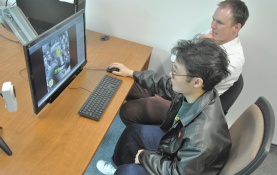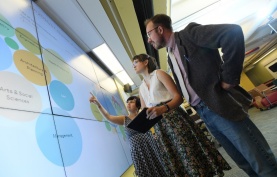Research
Inspiring social and economic action and innovation
At the heart of our research mission is a commitment to creating knowledge that matters—knowledge that informs practice, shapes policy, and contributes to a more just, sustainable, and prosperous world.
Our core research areas
- Engaging work and learning environments
- Indigenous paradigms for management
- Systems and policies for sustainability
- Data and AI transformation across sectors
- Socially responsible markets and marketing
- Leadership and change in business and government
Research in Review

Our yearly reports highlight the breadth and depth of our scholarly achievements, from groundbreaking publications and funded projects to community-engaged research and interdisciplinary initiatives.
- Download 2024 Research in Review [PDF 79.3 MB]
- Download 2023 Research in Review [PDF 861 KB]
- Download 2022 Research in Review [PDF 1.3 MB]
- Download 2021 Research in Review [PDF 825 KB]
- Download 2020 Research in Review [PDF 650 KB]
Strategic Research and Innovation Plan
Building on our Faculty’s Strategic Plan (2021 – 2026), we are positioning our Faculty to create the future of management scholarship, thought leadership, and impact. We appreciate that rigorous evidence is the key to supporting new possibilities and value in private, public, and not-for-profit sectors.
Download Management's Strategic Research and Innovation Plan for 2023-2028 [PDF 227 kB]

